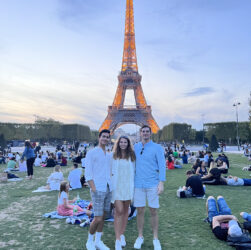Marco Kruger BCom International Business Semester Exchange in the Second Semester, 2022 at ESSEC Business School Pre-departure: Preparing …


Marco Kruger BCom International Business Semester Exchange in the Second Semester, 2022 at ESSEC Business School Pre-departure: Preparing …

Pre-departure As part of Stellenbosch’s International Business degree, students are given the opportunity to spend a semester abroad. It was …

My Parisian Exchange By Lauren Ryley Preparation When I found out that I’d been nominated for the Sciences Po (Paris) …